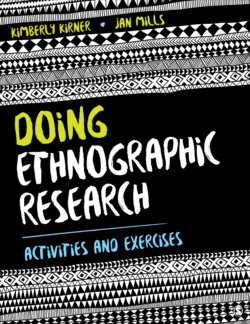Читать книгу Doing Ethnographic Research - Kimberly Kirner - Страница 16
На сайте Литреса книга снята с продажи.
Activity 1.2: Identifying Researchers’ Approach
ОглавлениеBackground: Anthropology is both part of the humanities and a science, depending on each anthropologist’s theoretical perspective and methodology. These two broad-based positions treat “truth” as different concepts, with different ways of studying and understanding it. Science strives for objectivity and chases truths that are thought to be external to the individual researcher. In the humanities, the truth is not an absolute but instead is decided by individual human judgments. It is a constructivist view: the idea that reality is constructed uniquely by each person. Deduction happens when a researcher starts with a theory, creates hypotheses that test the theory, and then conducts research that generates observations that either support or refute the hypothesis. Induction happens when a researcher starts with making observations, then generates ideas about what the data are saying (hypotheses), and from there, builds or discusses relevant theory. Many research projects use both of these approaches in the hypothetico-deductive model, which combines the two: exploratory research, which uses the inductive approach first, and then confirmatory research, which uses a deductive approach to follow up and refine.
In social science, we also talk about paradigms, which are theoretical perspectives, or what we might call grand theory. These are broad ways of looking at the world—a researcher’s paradigm defines the major issues with which the researcher is concerned. Paradigms are related to what we like to call the BIG questions, the questions that social scientists (and philosophers, theologians, and so on) have been trying to answer for hundreds of years (and that may never be fully answered). We can think of these as questions that are broadly interesting and grand (BIG). When you construct your own research project, you should consider how it fits in with these BIG questions and paradigms in your discipline.
Connection: Researchers may use various approaches to their research—humanities versus sciences orientation, induction versus deduction, or exploratory versus confirmatory research. Many times these approaches are buried and unclear in researchers’ abstracts or papers.
This activity will help you identify researchers’ approaches to research questions and how these approaches can be embedded in the stages of research discovery.
